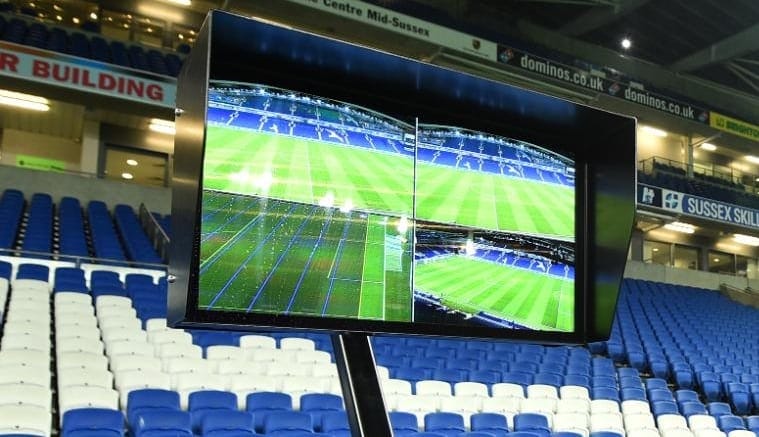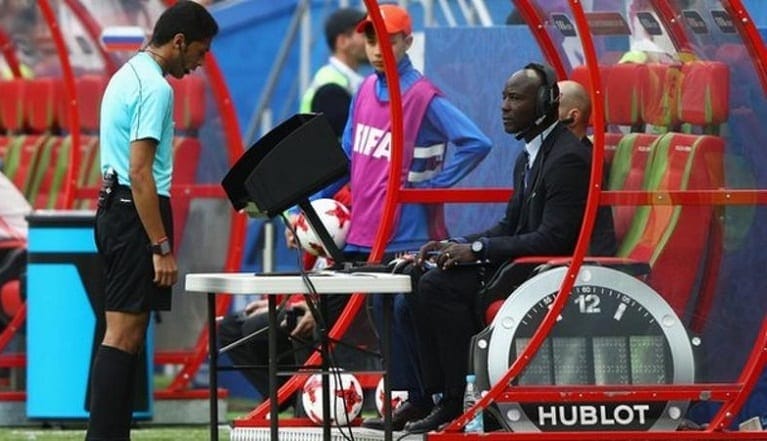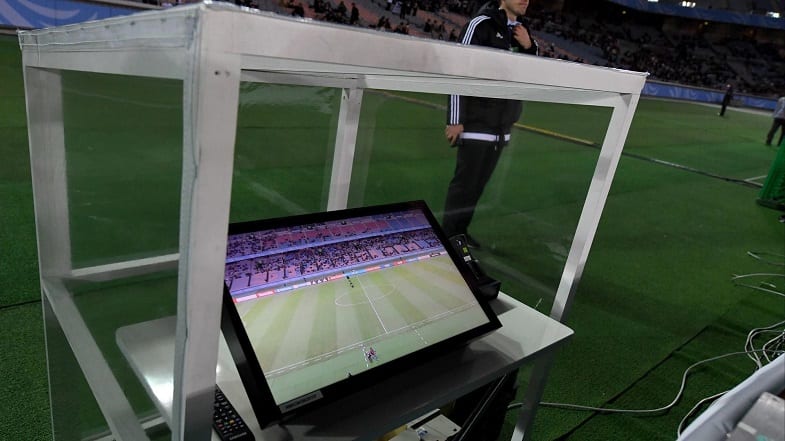
It took a long time, some may even say way too long, for soccer to adopt technology that will help referees.
Now it is finally happening.
Video Assistant Referee, or VAR, has been approved by FIFA executives for use at this summer’s World Cup in Russia, following a two year worldwide trial. In order to understand how we got to this point we have to go back in time, to the 2010 World Cup in South Africa; the day which convinced even the conservative old dinosaurs at FIFA that the time for change has come.
Two great games were scheduled for the round of 16 on June 27th, the classic match between Germany and England took place in the afternoon followed by the Latin-flavored showdown between Argentina and Mexico later in the evening.
The Germans were up 2:1 late in the first half when it looked as if England evened the score with a Frank Lampard shot that hit the crossbar and landed clearly over the goal line before it was cleared by German keeper Manuel Neuer. The referee, who had a split second to decide, thought the ball had not crossed the line. The Germans kept the lead instead of a 2-2 draw, Germany eventually won the game 4:1. For the Germans it may have been poetic justice as it came 44 years after that controversial Geoff Hurst goal which gave England its first and only World Cup title. The only difference is that in 1966 we had one angle to watch, in 2010 there were hundreds of cameras covering every square inch of the pitch. Within seconds the whole world saw that Lampard’s shot crossed the line. The only one who didn’t see it was the most important man, the referee who made the decision not to allow the goal.

Later that evening, Argentina beat Mexico 3:1, the first goal for the Albiceleste was scored by Carlos Tevez, who was way offside. This time even the referee saw his mistake within seconds on the big screen in the stadium. There was nothing he could do about it as usage of video replay was not allowed.
The campaign for video assistance had already started before the 2010 World Cup, but these two giant mistakes, on the biggest soccer stage there is, seemed to be the tipping point. It was clear that something had to change.
It took some time and negotiations but finally, in 2016, soccer’s association board, IFAB, finally gave their approval to use video referees in a two year trial, just in time to be up and officially running for the 2018 world cup.
Those who criticize the move mostly feared it will hurt the flow of the game, slow the pace, and lead to endless pauses, which led IFAB to lay some ground rules.
The use of VAR is allowed in only four types of situations: goals, penalty decisions, direct red card decisions (meaning they cannot review second yellow cards), and mistaken identity in awarding either a red card or yellow card to a player.

This means the games will not be constantly stopped, not every foul will be checked. But when it comes to big decisions which may affect the final result, the referee will have the assistance needed to make the right decision.
More than 900 games were part of the VAR trial over the past two years. In 70 percent of them there was no need for VAR. In the 30 percent of the matches where the system was used, the average time spent in reviewing the relevant video was 55 seconds per game, far less than the time it takes the referees in other sports to watch instant replays, even less than the time spent in hawk-eye challenges in tennis.
As with every change, especially in such a conservative sport as soccer, not everyone is happy. Players and coaches voiced their criticism, mainly speaking about the fact they do not know how exactly the system operates. This is the exact reason why UEFA president Aleksander Ceferin said he will not introduce VAR in the Champions League next season.
If VAR proves successful in Russia, it may of course change those opinions. The positive experience of goal-line technology used for the first time in the previous World Cup in Brazil, and since implemented in the major European leagues, could repeat itself here.
As much as the fans may like to remember those good old nostalgic stories, the Geoff Hurst goal, Maradona’s hand of god or the goal that England should have been awarded in 2010, what they really want are good decisions by the referees. If VAR can help with that, it is definitely a step worth taking.

The greatest NBA dynasties of all time
The goal for any basketball franchise is to build a dynasty that fans and experts will be talking about for











